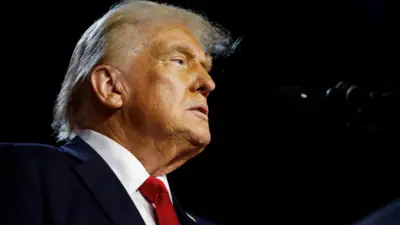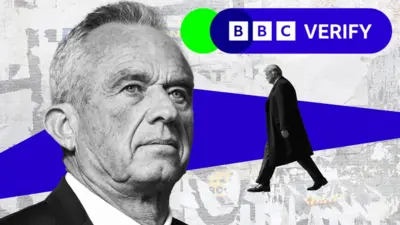We've updated our Privacy and Cookies Policy
We've made some important changes to our Privacy and Cookies Policy and we want you to know what this means for you and your data.
Corbyn criticised over book anti-Semitism row
Image source, PA
Jeremy Corbyn should provide "a full explanation" as to to why he wrote the foreword to a book considered anti-Semitic, the President of the Board of Deputies of British Jews has said.
he wrote the foreword in 2011 for a new edition of JA Hobson's 1902 book, Imperialism: A Study.
Labour says "Jeremy completely rejects the anti-Semitic elements" of the book.
Shadow minister Rebecca Long Bailey said he was not "condoning it but commenting" on the work.
Marie van der Zyl, the President of the Board of Deputies, said of the book's message: "This is pure and unequivocal racism and there can be no apology for it."
The Labour leader was also criticised by the Jewish Labour Movement who said he should "consider his position".
The organisation said it would be submitting a complaint to the Labour Party and asking the Equalities and Human Rights Commission to include it in their potential investigation.
In March, the commission said it was considering launching a formal investigation into anti-Semitism in the party.
Image source, Getty Images
The Labour Party said: "Similarly to other books of its era, Hobson's work contains outdated and offensive references and observations, and Jeremy completely rejects the anti-Semitic elements of his analysis."
Speaking on 91»»Ī¨ Radio 4's Today programme, shadow business secretary Rebecca Long Bailey said Mr Corbyn was "not unlike other politicians who have quoted Hobson in particular speeches and indeed written pieces about them".
However she added that he would not "countenance the support of any anti-Semitic comments".
Who was JA Hobson?
John Hobson was a historian who came to prominence at the end of the 19th Century.
In his book Imperialism: A Study, he argued that imperialism was driven by capitalism.
The book, which has been criticised as anti-Semitic, espouses the theory that finance in Europe was driven "by men of a singular and peculiar race who have behind them many centuries of financial experience".
He also suggested that European countries would not engage in a war "if the house of Rothschild and its connections set their face against it".
What did Jeremy Corbyn say?
In the 2011 foreword, Mr Corbyn praised the book's "brilliant" analysis of "the pressures that were hard at work pushing for a vast national effort in grabbing new outposts of empire on distant islands and shores".
He also describes JA Hobson's "railing against the commercial interests that fuel the role of the popular press with tales of imperial might, that then lead on to racist caricatures of African and Asian peoples" as "correct and prescient".
How have others reacted?
In his article for the Times, the Conservative peer Lord Finkelstein, asked: "Did Mr Corbyn not read the book before he praised it? Did he read it but, as with the Mear One mural, not notice that it was anti-Semitic? Did he realise it but decide it didn't matter because there were other more important things about it?
"One thing is clear - the problem of left-wing anti-Semitism isn't really about Israel, it's much more deeply embedded than that."
Labour MP Wes Streeting not to defend Jeremy Corbyn but added he would not be leaving the party over anti-Semitism claims.
He said "walking away" would amount to "surrendering - completely - Britain's main opposition party to those who dismiss, enable or perpetrate anti-Semitism".
MP Ian Austin, who quit the party in February, of endorsing a book "that peddles racist stereotypes of Jewish financiers".
However, ex-Labour MP and director of the V&A Museum "it would be reductive to categorise JA Hobson as only an anti-Semitic thinker.
"Like too many on the left he did make a racist and ugly alignment of 'Jewish finance' with imperialism.
"But he was also an important figure, worthy of study, within the 20th Century liberal tradition."
Top Stories
More to explore
Most read
Content is not available








